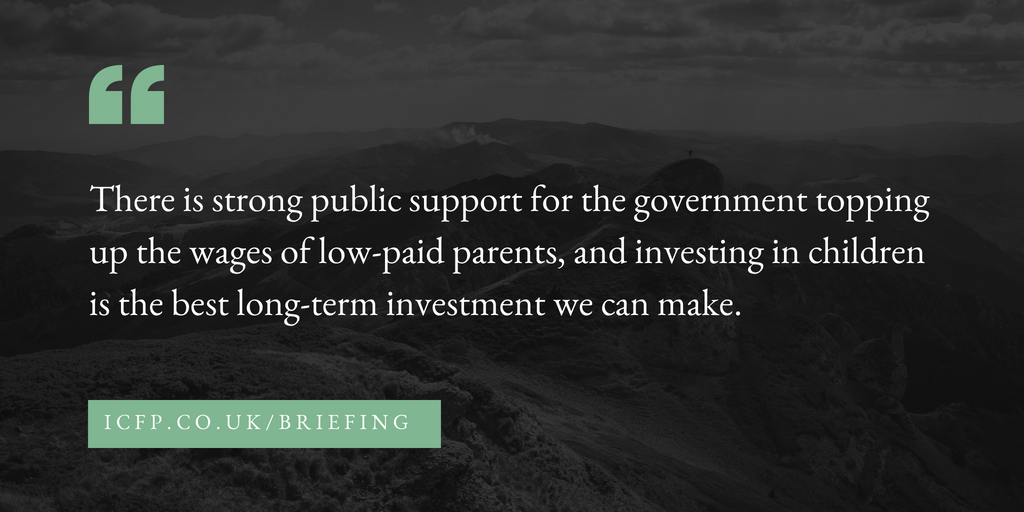In this edition of The Briefing from Informed Choice on Monday 20th August 2018 – falling short of a basic lifestyle, Greece completes third bailout, collective energy switching trial, failure to plan for care costs, and AI jobs warning.
Subscribe to The Briefing by email
Enable the Amazon Alexa Flash Briefing Skill
Falling short of a basic lifestyle
New research has found that a full-time working couple earning the minimum wage, who have two children, are £49 a week short of being able to provide their family with a basic, no-frills lifestyle. According to the Child Poverty Action Group, the government needs to increase its national living wage to ensure families can have an acceptable standard of living. In its new Cost of a Child report, the group reported an 11% weekly shortfall for couples raising two children at ages three and seven. Lone parents found themselves 20% short of being able to provide an acceptable standard of living for their children. According to the group, rising prices, freezes on benefits and tax credit, the bedroom tax and the rollout of universal credit were all factors hitting “family budgets hard”.
Chief executive, Alison Garnham, said:
There is strong public support for the government topping up the wages of low-paid parents, and investing in children is the best long-term investment we can make.
By using the forthcoming budget to unfreeze benefits and restore work allowances, the government can take steps towards making work really pay.
Greece completes third bailout
Greece has completed a three-year bailout programme worth £55bn, introduced to tackle its debt crisis. It was the final part of a eurozone bailout programme worth more than €260bn which saw punitive austerity measures applied to the country. Greece will continue to repay its loans for several decades. By completing the latest programme, Greece is now able to borrow at market rates. The Greek economy remains a quarter smaller than it was at the start of the eurozone debt crisis.
Collective energy switching trial
A collective energy switching trial, run by energy regulator OFGEM, has resulted in loyal and elderly customers saving at least £261 a year. The trial involved 50,000 customers who had been on the same variable rate tariff with one of the big six energy suppliers for at least six years. Rather than switching individual customers, the trial involved switching collective groups of customers. Despite one in five customers in the trial not switching supplier, OFGEM hailed it as a success.
Rob Salter-Church, from OFGEM, said:
The results of this trial demonstrate that offering a simplified collective switch and providing personalised savings can be a big help in giving these customers the confidence and reassurance they need to start a switch.
Failure to plan for care costs
New research from consumer group Which? has found only 12% of over 55s have put aside enough money to meet future care needs. The research also shows that many people have failed to talk to their family and friends about the type of care they want in later life. Many others claimed they didn’t know where to find the information needed about future care needs. According to Which?, the findings show that government proposals due this autumn on social care reform need to be realistic about the lack of planning ahead.
Alex Hayman, managing director of public markets at Which?, said:
The broken social care system cannot continue to fail older people and their families in delivering high-quality, affordable care when they most need support.
The Government must recognise that most people won’t have made extensive plans for their care, so the system must be designed to help people get the support they need at a time of crisis and stress for themselves and their loved ones.
AI jobs warning
Bank of England chief economist Andy Haldane has issued a warning over artificial intelligence making a large number of jobs obsolete. Haldane warned that thousands of UK workers risk becoming unemployed as a result of new technology. He warned that the fourth industrial revolution would be of a much greater scale than previous industrial revolutions, requiring a new skills revolution in the UK to avoid mass unemployment. According to Haldane, previous industrial revolutions had a “wrenching and lengthy impact on the jobs market, on the lives and livelihoods of large swathes of society”. He said:
Jobs were effectively taken by machines of various types, there was a hollowing out of the jobs market, and that left a lot of people for a lengthy period out of work and struggling to make a living.
That heightened social tensions, it heightened financial tensions, it led to a rise in inequality. This is the dark side of technological revolutions and that dark-side has always been there.
That hollowing out is going to be potentially on a much greater scale in the future, when we have machines both thinking and doing – replacing both the cognitive and the technical skills of humans.
Informed Choice provides a regular personal finance and investment news summary, with an updated Flash Briefing for your Alexa enabled device. Search for The Briefing from Informed Choice in your Amazon Alexa app or visit https://www.amazon.co.uk/Informed-Choice-Radio/dp/B074DZZ1MF/ to enable this Flash Briefing.


